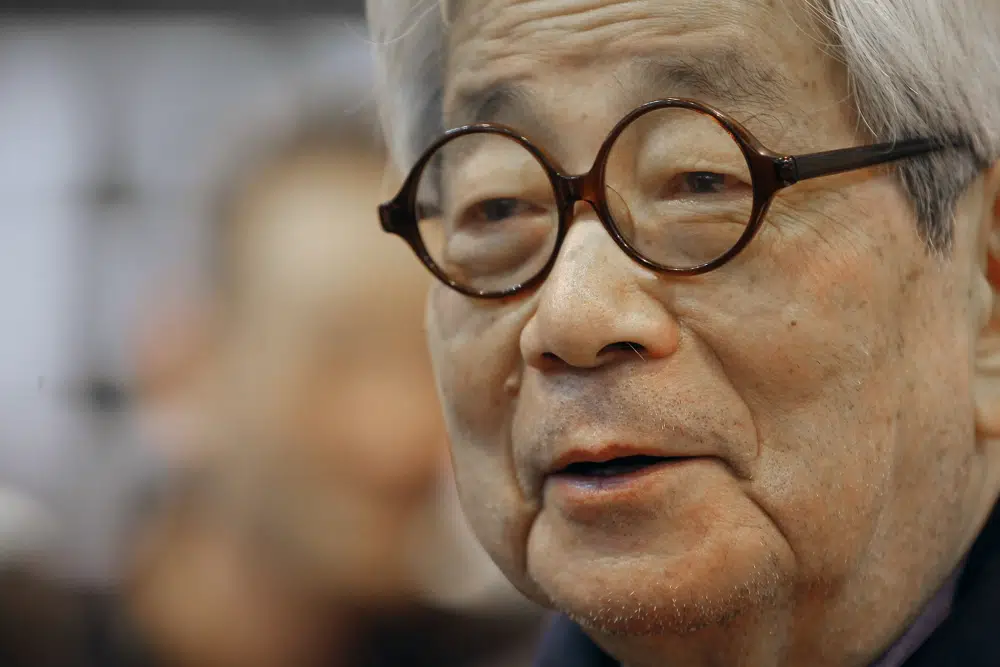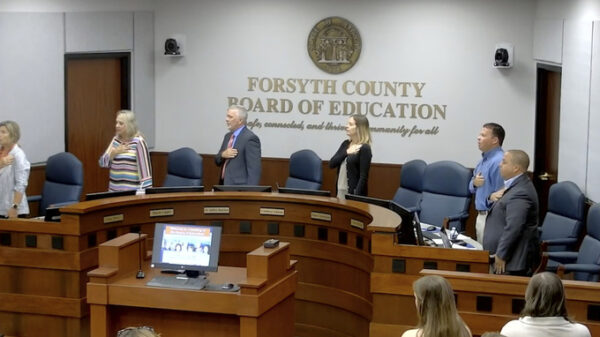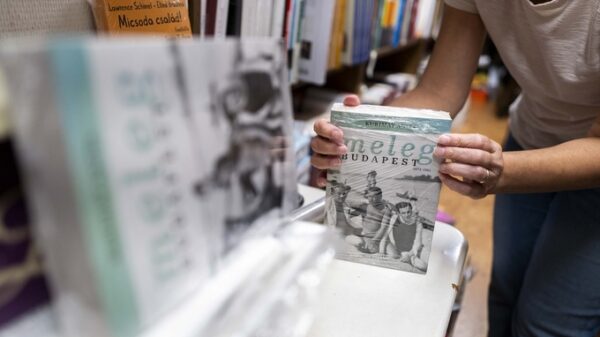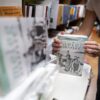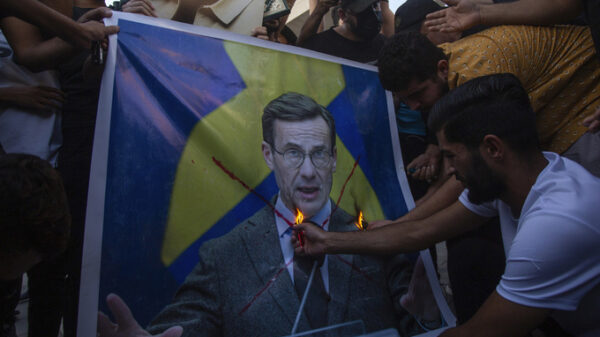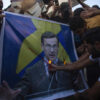FILE – Japanese Nobel Prize winning author Kenzaburo Oe poses during the inauguration of the 32nd Paris Book Fair, which focused on Japanese writers, March 15, 2012. Japanese publisher Kodansha Ltd. said Monday, March 13, 2023 that Nobel literature laureate Kenzaburo Oe died of old age. Oe’s darkly poetic novels were built from a childhood during Japan’s postwar occupation and parenthood with a disabled son. (AP Photo/Jacques Brinon, File)
TOKYO (AP) — Nobel literature laureate Kenzaburo Oe, whose darkly poetic novels were built from his childhood memories during Japan’s postwar occupation and from being the parent of a disabled son, has died. He was 88.
Oe, who was also an outspoken anti-nuclear and peace activist, died on March 3, his publisher, Kodansha Ltd., said in a statement Monday. The publisher did not give further details about his death and said his funeral was held by his family.
Oe in 1994 became the second Japanese author awarded the Nobel Prize in literature.
The Swedish Academy cited the author for his works of fiction, in which “poetic force creates an imagined world where life and myth condense to form a disconcerting picture of the human predicament today.”
His most searing works were influenced by the birth of Oe’s mentally disabled son in 1963.
“A Personal Matter,” published a year later, is the story of a father coming to terms through darkness and pain with the birth of a brain-damaged son. Several of his later works have a damaged or deformed child with symbolic significance, with the stories and characters evolving and maturing as Oe’s son aged.
Hikari Oe had a cranial deformity at birth that caused mental disability. He has a limited ability to speak and read but has become a musical composer whose works have been performed and recorded on albums.
The only other Japanese to win a Nobel in literature was Yasunari Kawabata in 1968.
Despite the outpouring of national pride over Oe’s win, his principal literary themes evoke deep unease here. A boy of 10 when World War II ended, Oe came of age during the American occupation.
“The humiliation took a firm grip on him and has colored much of his work. He himself describes his writing as a way of exorcising demons,” the Swedish Academy said.
Childhood wartime memories strongly colored the story that marked Oe’s literary debut, “The Catch,” about a rural boy’s experiences with an American pilot shot down over his village. Published in 1958, when Oe was still a university student, the story won Japan’s prestigious Akutagawa prize for new writers.
He also wrote nonfiction books about Hiroshima’s devastation and rise from the Aug. 6, 1945, U.S. atomic bombing, as well as about Okinawa and its postwar U.S. occupation.
Oe has campaigned for peace and anti-nuclear causes, particularly since the 2011 Fukushima crisis, and has often appeared in rallies.
In 2015, Oe criticized Japan’s decision to restart nuclear reactors in the wake of the earthquake and tsunami-triggered meltdown at the Fukushima plant, calling it a risk that could lead to another disaster. He urged then-Prime Minister Shinzo Abe to follow Germany’s example and phase out atomic energy.
“Japanese politicians are not trying to change the situation but only keeping the status quo even after this massive nuclear accident, and even if we all know that yet another accident would simply wipe out Japan’s future,” Oe said.
Oe, who was 80 then, said his life’s final work is to strive for a nuclear-free world: “We must not leave the problem of nuclear plants for the younger generation.”
The third of seven children, Oe was born on Jan. 31, 1935, in a village on Japan’s southern island of Shikoku. At the University of Tokyo, he studied French literature and began writing plays.
The academy noted that Oe’s work has been strongly influenced by Western writers, including Dante, Poe, Rabelais, Balzac, Eliot and Sartre.
But even with those influences, Oe brought an Asian sensibility to bear.
In 2021, thousands of pages of his handwritten manuscripts and other works were sent to be archived at the University of Tokyo.
Copyright 2021 Associated Press. All rights reserved.
Source: https://apnews.com/article/kenzaburo-oe-nobel-literature-japan-cc9a1cec252d4b1688a27b1565e6289a





















